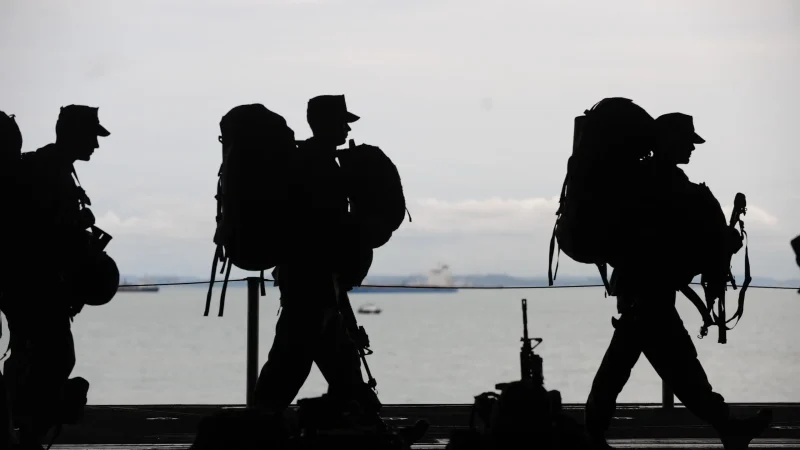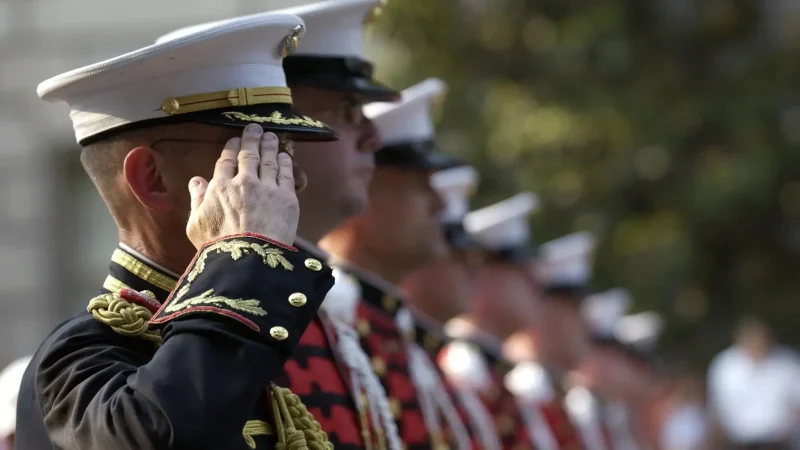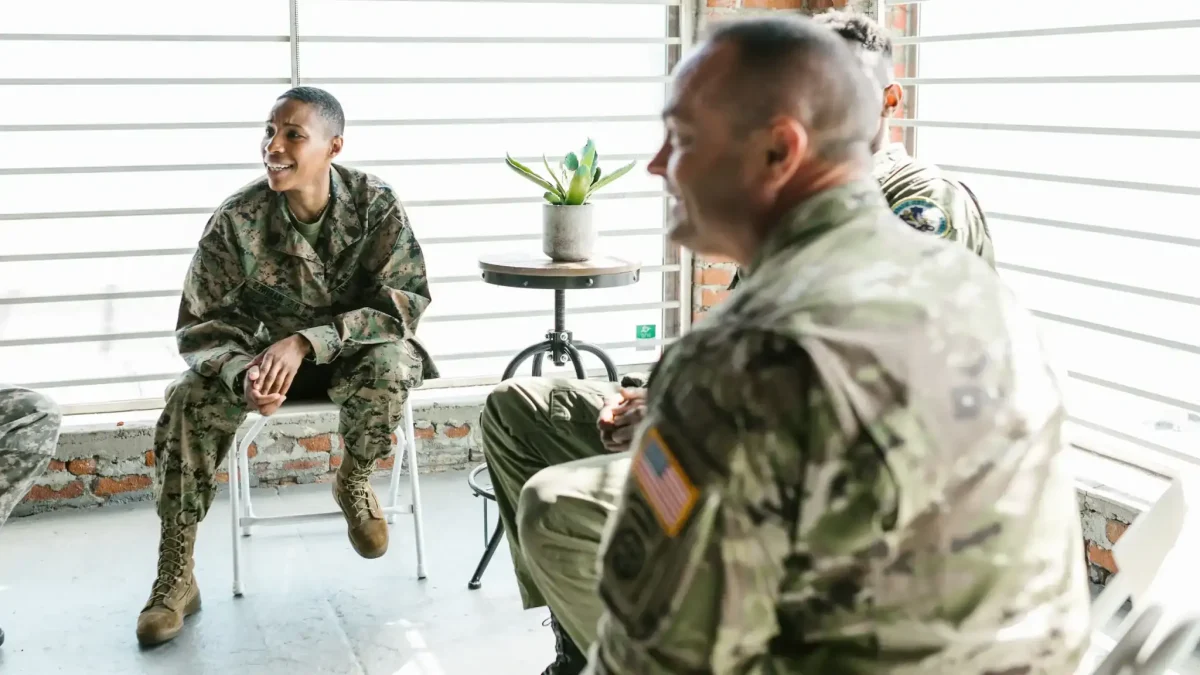
Take Control of Your Life Today
At CATCH Recovery, we offer specialised support for veterans struggling with addiction and mental health challenges. We understand the unique experiences and difficulties faced by those who have served in the military, and our tailored therapy services provide a safe space to work through trauma, stress, and substance use issues. Our goal is to help veterans regain stability, resilience, and a sense of purpose in their recovery journey.
We offer:
- One-to-one therapy sessions with experienced professionals
- Specialised support for PTSD, trauma, and addiction
- Flexible treatment options tailored to
veterans’ needs - A confidential and understanding approach to care.
Contact us today to learn more about our support for veterans and find the right help for your situation. You don’t have to go through this alone—our experienced therapists are here to help.
Table of Contents
At CATCH Recovery our mission is to provide compassionate guidance and professional assistance as we navigate the path to recovery together. With a team of highly trained counsellors who understand the challenges veterans face, we strive to create a safe and nurturing environment where healing can occur. You are not alone in this journey; we are here to listen, understand, and help you reclaim your life, one that’s free from addiction.

Download Brochure
Veterans and Addiction
Veterans across the United Kingdom face unique challenges when it comes to addiction. Let’s explore three significant factors contributing to this issue: chronic pain, homelessness, and alcoholism. By understanding the impact of these factors, we can develop a deeper appreciation for the struggles veterans face and the importance of providing them with appropriate addiction counselling and support.
Chronic Pain: Chronic pain is a widespread problem among veterans, often resulting from injuries sustained during service. A charity organisation called PTSD Resolution has conducted a survey which reveals that 46% of 500 UK armed forces veterans who participated admitted to turning to drugs or alcohol as a way to cope with their trauma symptoms. This debilitating condition affects not only their physical well-being but also affects their mental health. Many veterans turn to opioids and other pain-relieving medications, which can lead to addiction if not properly managed.
Homelessness: Sadly, homelessness is a distressing reality for some veterans in the UK. The Royal British Legion estimated in 2020 that there were up to 4,000 homeless veterans in the UK. Our Health & Well-being team reports increased referrals over the past few months where personal situations threaten possible homelessness. Transitioning from military to civilian life can be challenging, and some veterans find themselves without stable housing or support networks. This vulnerability increases the likelihood of turning to substance misuse as a coping mechanism, exacerbating the problem of addiction.
Alcoholism: Alcoholism is a prevalent issue among veterans, affecting their well-being and relationships. Compared to civilians, those who have served in the military are almost twice as likely to suffer from alcohol problems, with 67% of men and 49% of women in the UK military classifying as having a drinking problem, compared to only 38% of men and 16% of women in the general population Factors such as the stress of deployment, trauma, and difficulties adjusting to civilian life can contribute to the development of alcohol addiction. Recognising the specific needs of veterans struggling with alcoholism is crucial for effective treatment and recovery.
The Stress of Being a Hero
Being a hero comes with unique challenges, and the stress accompanying a service member’s role should not be underestimated. Let’s delve into three aspects of this stress: being away from family, high expectations, and financial strain. We can better support our brave heroes by understanding and addressing these challenges.

Being Away from Family
One of the most challenging aspects of military service is being away from loved ones, particularly during deployments. The strain of separation can take a toll on service members and their families, leading to increased stress levels. Unfortunately, this separation can sometimes lead to additional emotional challenges, such as infidelity within relationships. According to a UK Ministry of Defence study, the infidelity rate during a partner’s deployment can be as high as 25%. Recognising the impact of this stress on relationships is crucial to providing the support and counselling needed to navigate these difficult situations.

High Expectations
Service members often face high expectations, both internally and externally. They are expected to perform their duties excellently and be solid and resilient in adversity. These expectations can create immense pressure and contribute to the stress experienced by our heroes. It is essential to acknowledge the emotional toll these expectations can have and provide avenues for open communication, support, and understanding.

Financial Strain
The financial strain service members and their families endured is another significant source of stress. Despite their selfless dedication, military personnel may face economic challenges. According to a Forces in Mind Trust study, around 48% of service personnel experience financial difficulties during their military career. This strain can intensify during the transition to civilian life, as veterans may encounter problems finding employment or adapting to new economic circumstances. Financial education, resources, and assistance can significantly alleviate the burden and help alleviate the stress caused by financial strain.
Challenges of Civil Life
Transitioning from military service to civilian life can be daunting and complex. In this article, we will explore three significant challenges veterans face as they reintegrate into civil life: the change in the speed of life, the need for constant vigilance, and the loss of contact with fellow squad members who genuinely understand their pain and worries. Understanding and addressing these challenges is crucial in providing the care and support our veterans deserve.
Change in Speed of Life
One of the most noticeable differences for veterans when transitioning to civilian life is the change in the speed of life. Military service often involves strict routines and structured environments. In contrast, civilian life can be fast-paced, chaotic, and overwhelming. Adjusting to this new pace can be challenging, leading to feelings of unease, disorientation, and even anxiety. Recognising the need for support during this transition and providing resources to help veterans navigate the change in speed of life is essential.
Constant Vigilance
In the military, constant vigilance is a way of life. Service members are trained to be aware of their surroundings and ready to respond to threats. However, transitioning to civilian life means adapting to an environment where the need for such heightened vigilance is diminished. For veterans, letting go of this instinctive state of alertness can be challenging and contribute to feelings of restlessness, anxiety, and vulnerability. Providing counselling and support that address the psychological aspects of transitioning from constant vigilance to a more relaxed state is crucial.
Losing Contact
One of the most painful aspects of transitioning to civilian life is losing contact with fellow squad members who have shared the same experiences, pain, and worries. The bond formed within a military unit is unique and deeply rooted in camaraderie and understanding. Losing contact with this support network can leave veterans feeling isolated and alone, unable to express their emotions and concerns to others who genuinely comprehend their journey. Establishing support groups, veteran organisations, and online communities can bridge this gap and provide a space where veterans can connect and find solace in shared experiences.

Find Out if Outpatient Therapy Is Right for You
Dual Diagnosis
Living with a dual diagnosis, where substance use disorder (SUD) coexists with mental health conditions, can be challenging. Among veterans, two commonly seen dual diagnoses are post-traumatic stress disorder (PTSD) and SUD, as well as depression and SUD. Understanding the complexities of dual diagnoses is crucial in providing effective support and compassionate care for our veterans.
PTSD and SUD
Post-traumatic stress disorder (PTSD) and substance use disorder (SUD) often intertwine, creating a challenging cycle for veterans. The intense emotional and psychological trauma experienced during service can lead to the development of PTSD, and some individuals turn to substances as a way to cope with the distressing symptoms. This dual diagnosis requires a comprehensive approach that addresses both conditions simultaneously, providing specialised therapies and support to promote healing and recovery.
Depression and SUD
Depression is another mental health condition commonly seen alongside substance use disorder among veterans. The weight of traumatic experiences, the challenges of reintegration into civilian life, and the sense of loss can contribute to depression. Unfortunately, some individuals may turn to substances as a means of self-medication, further exacerbating their struggles. Treating depression and SUD together requires a holistic approach that addresses the underlying causes of both conditions and provides integrated therapies to promote lasting recovery.
Other Common Diagnoses
In addition to PTSD, depression, and SUD, other mental health conditions often coexist with substance use disorder among veterans. These can include anxiety disorders, bipolar disorder, and personality disorders. Recognising and diagnosing these co-occurring conditions is crucial in providing comprehensive treatment and support to effectively address the complexities of dual diagnoses.

Start Your Recovery Journey Today
Honest Help and Advice for Veterans
At CATCH Recovery, we provide honest help and advice for veterans with dual diagnoses. Our approach is rooted in compassion and understanding, recognising our service’s unique challenges and experiences. Our one-to-one and group therapy sessions offer a safe and supportive environment where veterans can explore their emotions, develop coping strategies, and work towards lasting recovery.
We understand that the impact of dual diagnosis extends beyond; it also affects families and relationships. We also provide focused therapies to support families and couples, helping you navigate the challenges and rebuild healthy connections.
If you or a loved one is a veteran facing a dual diagnosis, reach out. Our team of experienced professionals is here to provide the help and support you need. Together, we can embark on healing, growth, and renewed hope.
Contact Us today and take the first step towards a brighter future. You deserve the care and support that will empower you to overcome dual diagnoses and reclaim a life of well-being and purpose.